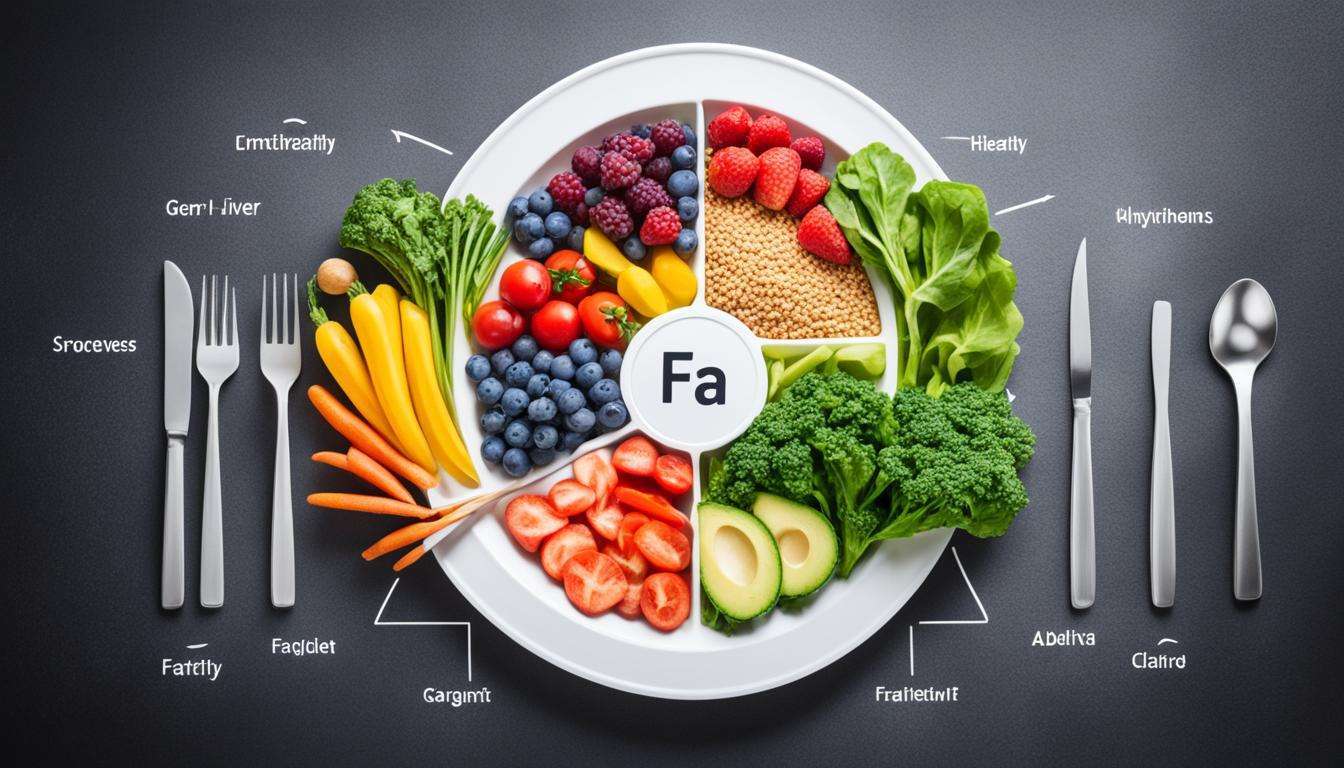If you or someone you know has been diagnosed with fatty liver disease, it’s important to understand that lifestyle changes can play a significant role in treating and helping to reverse a fatty liver condition.
Fatty liver disease is a condition in which fat builds up in the liver. There are two main types: alcoholic fatty liver disease and nonalcoholic fatty liver disease (NAFLD). NAFLD is the most common form of fatty liver disease and is not related to heavy alcohol use.
It is seen most often in people who are overweight or obese, and it is becoming more common around the world, especially in Middle Eastern and Western nations, as the number of people with obesity rises.
NAFLD can lead to nonalcoholic steatohepatitis (NASH), which is a serious form of fatty liver disease that can cause inflammation and liver cell damage, as well as fibrosis or scarring of the liver. NASH may lead to cirrhosis or liver cancer
In this article, we will explore the most effective tips to reverse a fatty liver, including diet recommendations, exercise strategies, and natural remedies.
Key Takeaways:
- Adopt a Mediterranean diet rich in healthy fats, antioxidants, and complex carbohydrates
- Avoid saturated fats and sugary items
- Incorporate foods rich in omega-3 fatty acids, monounsaturated fats, antioxidants, and vitamin E
- Consider supplements like goji berry, resveratrol, selenium, milk thistle, and berberine under medical supervision
- Engage in aerobic and strength training exercises
Fatty Liver Causes and Symptoms
Numerous factors that contribute to the buildup of fat in the liver can cause fatty liver disease, also known as hepatic steatosis. Understanding the causes and recognizing the symptoms is crucial for early detection and prompt management of the condition.
Fatty Liver Causes
The development of fatty livers can be attributed to several factors, including:
- Excessive alcohol consumption: Heavy and long-term alcohol intake can lead to alcoholic fatty liver disease.
- Obesity: Obesity is a major risk factor for fatty liver disease. Excess body weight, particularly around the abdomen, can increase the accumulation of fat in the liver.
- Diabetes: Individuals with diabetes are more prone to developing fatty liver disease due to insulin resistance and metabolic imbalances.
- Metabolic syndrome: Metabolic syndrome, which encompasses a combination of obesity, high blood pressure, high blood sugar, and abnormal cholesterol levels, significantly increases the risk of fatty liver.
- Certain medications: Some medications, such as corticosteroids, tamoxifen, and methotrexate, have been associated with the development of fatty liver disease.
- Rapid weight loss: Sudden and excessive weight loss can cause the liver to release stored fat, leading to the accumulation of fat in the liver cells.
- Certain medical conditions: Certain medical conditions, including polycystic ovary syndrome (PCOS), hypothyroidism, and Wilson disease, can contribute to the development of a fatty liver.
It is important to note that fatty liver disease can also occur in individuals without any known risk factors.
Fatty Liver Symptoms
Fatty liver disease is often asymptomatic in its early stages. However, as the condition progresses, common symptoms may include:
- Fatigue: Experiencing constant fatigue or a lack of energy is a common symptom of a fatty liver.
- Abdominal discomfort: Some individuals may experience discomfort or pain in the upper right side of the abdomen.
- Enlarged liver: In advanced stages of fatty liver disease, the liver may become enlarged, leading to a sensation of fullness in the abdomen.
It is important to remember that these symptoms can also be attributed to other conditions, so it is crucial to consult with a healthcare professional for an accurate diagnosis.

| Fatty Liver Causes | Fatty Liver Symptoms |
|---|---|
| Excessive alcohol consumption | Fatigue |
| Obesity | Abdominal discomfort |
| Diabetes | Enlarged liver |
| Metabolic syndrome | |
| Certain medications | |
| Rapid weight loss | |
| Certain medical conditions |
Fatty Liver Prevention
To prevent fatty liver disease, it is crucial to adopt a healthy lifestyle that encompasses various aspects of our daily routine. This includes maintaining a healthy weight through a proper diet and regular exercise.
By making conscious choices about the foods we consume and engaging in physical activity, we can significantly reduce the risk of developing fatty liver disease.

The Role of Diet
A balanced, nutritious diet plays a pivotal role in preventing fatty liver disease. Avoiding high-calorie, fatty foods and opting for a diet rich in fruits, vegetables, whole grains, and lean proteins is essential.
| Food to Include | Food to Avoid | |
|---|---|---|
| Fruits and Vegetables | High in antioxidants and fiber, which promote liver health | Avoid excessive consumption of high-sugar fruits and vegetables with added fats (e.g., fried potatoes) |
| Whole Grains | Rich in fiber and nutrients, it helps regulate blood sugar levels | Avoid refined grains and products with added sugars |
| Lean Proteins | Include sources such as fish, poultry, tofu, and legumes for essential amino acids | Avoid processed meats and high-fat cuts of meat |
| Healthy Fats | Opt for foods like avocados, nuts, and olive oil with monounsaturated and polyunsaturated fats | Avoid saturated and trans fats found in processed and fried foods |
“A healthy diet plays a pivotal role in preventing fatty liver.”
The Importance of Exercise
Physical activity is a critical component of fatty liver prevention. Regular exercise aids in maintaining a healthy weight, reducing insulin resistance, and improving overall liver function.
- Engage in moderate-intensity aerobic exercises such as brisk walking, jogging, swimming, or cycling for at least 150 minutes per week.
- Incorporate strength training exercises at least twice a week to build muscle and boost metabolism.
- Find activities you enjoy to make exercise a sustainable and enjoyable part of your routine.
Limit Alcohol Consumption
Excessive alcohol consumption is a significant contributor to fatty liver disease. To prevent its onset, it is important to limit alcohol intake or avoid it altogether.
“Exercise regularly and limit alcohol consumption to prevent fatty livers.”
Maintaining Long-Term Lifestyle Changes
Preventing fatty liver disease requires a commitment to long-term lifestyle changes. Incorporating healthy habits into our daily lives not only helps prevent fatty liver disease but also contributes to our overall well-being.
- Get regular check-ups and screenings to monitor liver health.
- Manage stress levels through relaxation techniques such as meditation or yoga.
- Avoid smoking and exposure to secondhand smoke, as it can harm liver function.
By adopting a healthy lifestyle, including a nutritious diet, regular exercise, and abstaining from excessive alcohol consumption, we can effectively prevent the development of fatty liver disease.
Fatty Liver Reversal Tips
In addition to adopting a healthy diet and regular exercise, the tips mentioned below can help reverse fatty liver. These lifestyle changes play a crucial role in improving liver health and promoting the reversal of fatty liver disease. Here are some tips to consider:
- Get enough quality sleep: A good night’s sleep is essential for overall health, including liver health. Aim for 7-9 hours of quality sleep each night to support the body’s natural healing processes.
- Manage stress levels: Chronic stress can contribute to liver inflammation and damage. Practicing stress management techniques such as meditation, deep breathing exercises, yoga, or engaging in hobbies can help reduce stress levels.
- Avoid smoking: Smoking releases harmful toxins into the body, which can further damage the liver. Quitting smoking can significantly improve liver health and overall well-being.
- Maintain regular check-ups: Regular visits to a healthcare provider are important for monitoring liver health and managing any underlying health conditions. Follow their recommendations and treatment plans diligently.
By incorporating these lifestyle changes into your daily routine, you can support the reversal of fatty livers and promote a healthy liver. Remember, small steps can lead to significant improvements in liver health over time.
“Small steps can lead to significant improvements in liver health over time.”

Natural Remedies for Fatty Liver
When it comes to improving a fatty liver, some natural remedies may be beneficial. While more research is needed to confirm their effectiveness, incorporating these remedies into your lifestyle may offer potential benefits.
It is important to note that consulting with a healthcare provider is recommended before trying any new remedies. Let’s explore some natural remedies that are being studied for their potential to help reverse fatty liver:
Coffee
Research suggests that consuming coffee may have a positive impact on fatty liver. Coffee contains antioxidants and other bioactive compounds that have been found to reduce inflammation and improve liver health. However, moderation is key, and it is important not to exceed the recommended daily caffeine limits.
Green Tea
Green tea is another beverage that has shown promise in improving fatty liver. It contains catechins, which are antioxidants that have been found to help reduce liver fat accumulation and improve liver function. Incorporating green tea into your daily routine may offer potential benefits for your liver health.
Raw Garlic
Garlic has long been used for its potential health benefits, including liver health. It contains compounds that have been found to have anti-inflammatory and antioxidant properties, which may help reduce liver inflammation and improve liver function. Adding raw garlic to your meals or consuming it in supplement form may be worth considering.
Fruits and Vegetables
A diet rich in fruits and vegetables provides essential nutrients and antioxidants that support overall health, including liver health. These foods are low in calories and high in fiber, vitamins, and minerals, making them an excellent choice for improving fatty liver. Incorporate a variety of colorful fruits and vegetables into your meals to maximize their benefits.
Supplements
Certain supplements are being studied for their potential benefits, which help reverse fatty liver. These include:
| Supplement | Potential Benefits |
|---|---|
| Goji Berry | Antioxidant properties, potential improvement in liver function |
| Resveratrol | Possible reduction in liver fat accumulation and inflammation |
| Selenium | Antioxidant properties, potential improvement in liver enzyme levels |
| Milk Thistle | Possible reduction in liver inflammation and oxidative stress |
| Berberine | Potential improvement in liver fat metabolism and insulin sensitivity |
It is important to note that while these supplements show promise, more research is needed to fully understand their effectiveness and safety. It is always best to consult with a healthcare provider before starting any new supplements.
Incorporating these natural remedies into your lifestyle may provide potential benefits for improving fatty liver. However, it is essential to remember that lifestyle modifications, such as maintaining a healthy weight, adopting a nutritious diet, and engaging in regular exercise, are the foundation of fatty liver treatment.
It is also crucial to consult with a healthcare provider for personalized advice and guidance throughout your journey towards a healthier liver.
https://www.youtube.com/watch?v=8GJ0q55yfTs
Fatty Liver Diet
When it comes to managing fatty liver, a healthy diet plays a crucial role in improving liver health and promoting overall well-being. The goal of the fatty liver diet is to reduce the intake of saturated fats and added sugars while increasing the consumption of foods that are rich in beneficial nutrients.
The Mediterranean diet is highly recommended for individuals with fatty liver. This eating plan emphasizes plant-based foods, such as fruits, vegetables, whole grains, legumes, and nuts. It also includes moderate amounts of lean proteins, like fish and poultry, as well as healthy fats from sources like olive oil and avocados. The Mediterranean diet is known for its anti-inflammatory properties and is associated with a reduced risk of chronic diseases, including fatty liver.
Incorporating foods that are rich in omega-3 fatty acids, monounsaturated fats, antioxidants, and vitamin E can help improve insulin resistance, reduce inflammation, and protect the liver from damage. These nutrients can be found in foods such as:
- Fatty fish like salmon, mackerel, and sardines
- Avocados
- Nuts and seeds
- Olive oil
- Green leafy vegetables
- Berries
On the other hand, it is important to limit the consumption of saturated fats and added sugars as they can contribute to liver fat accumulation and increase the risk of liver disease progression. Foods to avoid or limit include:
- Red meat
- Butter and full-fat dairy products
- Fried and processed foods
- Sugar-sweetened beverages
- Highly processed snacks and desserts
To create an individualized eating plan that suits your preferences and health needs, it is best to consult with a healthcare provider or a registered dietitian. They can provide personalized guidance and help you make dietary choices that support your journey to a healthier liver.
“A balanced diet rich in plant-based foods, lean proteins, and healthy fats is key in reversing fatty liver and promoting liver health.”
| Recommended Foods | Foods to Limit |
|---|---|
| Fruits and vegetables | Red meat |
| Whole grains | Butter and full-fat dairy products |
| Legumes | Fried and processed foods |
| Fatty fish | Sugar-sweetened beverages |
| Lean proteins (fish, poultry) | Highly processed snacks and desserts |
| Nuts and seeds | |
| Olive oil | |
| Avocados | |
| Green leafy vegetables | |
| Berries |
Fatty Liver Treatment Options
When it comes to the treatment of fatty liver, lifestyle modifications are key. By making changes to your diet and exercise routine, you can significantly improve your condition. The primary focus should be on losing weight and maintaining a healthy weight, as excess body weight is a major contributor to fatty liver disease. Regular physical activity, such as aerobic exercise and strength training, has been shown to reduce liver fat and improve liver health.
There are currently no specific medications approved for the treatment of fatty liver. Instead, natural approaches such as dietary changes and exercise are considered the mainstay of treatment. By adopting a healthy diet that is low in saturated fats and added sugars, and high in omega-3 fatty acids, antioxidants, and vitamin E, you can support liver health and promote the reversal of fatty liver. It is important to work with a healthcare provider or registered dietitian to create an individualized eating plan based on your personal preferences and health needs.
“By adopting a healthy lifestyle and making the necessary changes to your diet and exercise routine, you can take control of your fatty liver and improve your overall liver health.”
Consulting with a healthcare provider is crucial for personalized treatment recommendations. They can assess your specific situation and guide the best course of action. Regular monitoring of your liver health is also important to track your progress and make any necessary adjustments to your treatment plan.
Treatment Recommendations
Here are some key treatment recommendations for fatty liver:
- Adopt a healthy diet low in saturated fats and added sugars, and high in omega-3 fatty acids, antioxidants, and vitamin E.
- Engage in regular physical activity, including both aerobic exercise and strength training.
- Work with a healthcare provider or registered dietitian to create an individualized eating plan.
- Monitor liver health regularly to track progress.
- Follow personalized treatment recommendations provided by your healthcare provider.
Remember, reversing fatty liver naturally takes time and commitment. By taking the necessary steps to improve your lifestyle, you can take control of your fatty liver and improve your overall liver health.
Exercise for Fatty Liver
Aerobic exercise and strength training are both effective in reducing the amount of fat in the liver and improving fatty liver disease. To see positive results, it is recommended to engage in moderate to high-level aerobic exercise for at least 30 to 60 minutes on 5 or more days a week.
Additionally, incorporating mid- to high-level strength training exercises at least 3 days a week can be beneficial.
It is important to start slowly and gradually increase the intensity and duration of exercise to avoid overexertion. Consistency is key in reaping the benefits of exercise for fatty liver.
Consulting with a healthcare provider before starting an exercise program is recommended, especially if you have any underlying health conditions or concerns.
Exercise has been shown to help reduce liver fat accumulation and improve liver function. The combination of aerobic exercise and strength training can have a synergistic effect, providing both cardiovascular benefits and muscle-building effects.
Aerobic exercise, such as brisk walking, jogging, cycling, or swimming, helps burn calories and reduce overall body fat, including liver fat.
It supports weight loss, improves insulin sensitivity, and reduces inflammation, all of which are important in reversing fatty liver. Aim for at least 30 minutes of moderate-intensity aerobic activity on most days of the week.
Incorporating strength training exercises, such as weightlifting or resistance band workouts, helps build lean muscle mass. Muscle mass is metabolically active and can increase the body’s calorie-burning capacity, helping to further reduce liver fat.
Strength training also improves insulin sensitivity and overall body composition. Aim for two to three sessions of strength training per week, targeting major muscle groups.
When beginning an exercise program, it is important to listen to your body and start at a comfortable level. Gradually increase the intensity, duration, and frequency of exercise as you build stamina and strength. Remember to warm up before exercise and cool down afterward to prevent injuries.
Exercise is just one aspect of a comprehensive approach to reducing fatty liver. It should be combined with a healthy diet, weight management, and other lifestyle modifications for optimal results. Speak with a healthcare provider or a registered dietitian for personalized advice and guidance.
Fatty Liver Exercise Tips
To get started on your exercise journey for reducing fatty liver, here are some helpful tips:
- Choose activities that you enjoy to make exercise more enjoyable and sustainable.
- Find a workout buddy or join a class to stay motivated and accountable.
- Gradually increase the intensity and duration of exercise over time to challenge your body and continue making progress.
- Set realistic goals and celebrate milestones along the way to maintain motivation.
- Stay hydrated before, during, and after exercise to support overall health and performance.
- Listen to your body and rest when needed to prevent overexertion or injury.
“Exercise is an essential component in reducing liver fat and improving fatty liver disease. Combining aerobic exercise and strength training can help optimize results and provide numerous health benefits.”
| Aerobic Exercise | Strength Training |
|---|---|
| Brisk walking | Weightlifting |
| Jogging/Running | Resistance band workouts |
| Cycling | Bodyweight exercises |
| Swimming | Dumbbell exercises |
Remember to consult with a healthcare provider before starting a new exercise program, especially if you have any underlying medical conditions or concerns.
Lifestyle Changes for a Healthy Liver
Making lifestyle changes is crucial for improving overall liver health and can greatly contribute to reversing fatty liver. By adopting the following healthy habits, you can support the detoxification process and promote the optimal functioning of your liver:
- Avoid Excessive Alcohol Consumption: Limiting or eliminating alcohol consumption is essential for liver health. Excessive alcohol intake can lead to liver inflammation and damage, increasing the risk of developing fatty liver disease.
- Maintain a Healthy Weight: Being overweight or obese puts extra strain on the liver and can lead to fatty liver disease. By maintaining a healthy weight through a balanced diet and regular exercise, you can reduce the accumulation of fat in the liver.
- Follow a Balanced Diet: A diet that is rich in fruits, vegetables, whole grains, lean proteins, and healthy fats is beneficial for liver health. Incorporate foods that are high in antioxidants and nutrients to support liver detoxification and reduce inflammation.
- Get Regular Exercise: Engaging in regular physical activity has numerous benefits for liver health. Exercise helps maintain a healthy weight, reduces fat accumulation in the liver, and promotes overall metabolic health. Aim for a combination of aerobic exercise, strength training, and flexibility exercises for optimal results.
- Manage Stress Levels: Chronic stress can negatively impact liver health. Practice stress-management techniques such as deep breathing, meditation, yoga, or engaging in hobbies that help you relax and unwind.
- Avoid Exposure to Toxins: Minimize your exposure to toxins, pollutants, and chemicals. Choose organic produce, use natural cleaning products, and avoid inhaling harmful substances.
“A healthy liver is the key to overall well-being. By making these lifestyle changes, you can support your liver’s natural detoxification processes and improve its overall health.”
Foods That Promote Liver Health
| Food | Benefits |
|---|---|
| Fruits and Vegetables | Rich in antioxidants and fiber, which support liver detoxification and reduce inflammation. |
| Oily Fish | High in omega-3 fatty acids, which have anti-inflammatory properties and can help reduce fat accumulation in the liver. |
| Nuts and Seeds | Contains healthy fats, antioxidants, and fiber that support liver health and reduce oxidative stress. |
| Green Tea | Rich in antioxidants that promote liver health and protect against oxidative damage. |
| Turmeric | Contains a compound called curcumin, which has anti-inflammatory and antioxidant properties that promote liver health. |
| Grapefruit | Contains antioxidants and vitamin C, which stimulate liver detoxification enzymes and support overall liver health. |
Remember to consult with a healthcare provider before attempting any specific liver detox or liver cleanse protocols. They can provide personalized advice and ensure that any lifestyle changes are suitable for your individual health needs.
Conclusion
Fatty liver disease is a condition that can be reversed through healthy lifestyle changes and proactive management. By adopting a balanced diet, focusing on weight loss, and incorporating regular exercise, individuals can improve their liver health and reverse the effects of fatty liver.
The Mediterranean diet, rich in plant-based foods and healthy fats, is an effective dietary approach for combating fatty liver.
In addition to diet, other lifestyle modifications, such as prioritizing sufficient sleep, managing stress levels, and avoiding alcohol and toxins, can further contribute to overall liver health.
While there are no specific medications approved for fatty liver, ongoing research is exploring natural remedies and supplements that may provide additional benefits.
It is crucial to consult with a healthcare provider for personalized treatment recommendations and to monitor liver health regularly. With the right guidance and proactive management, individuals can take control of their liver health and improve their overall well-being.
FAQ
How can I reverse a fatty liver?
To reverse a fatty liver, it is important to adopt a healthy lifestyle. This includes maintaining a healthy weight through a proper diet and regular exercise.
The Mediterranean diet, which includes healthy fats, antioxidants, and complex carbohydrates, is recommended for reversing fatty liver. Including foods rich in omega-3 fatty acids, monounsaturated fats, antioxidants, and vitamin E can help improve insulin resistance and reduce inflammation. It is important to avoid saturated fats and sugary items.
Additionally, certain supplements like goji berry, resveratrol, selenium, milk thistle, and berberine are being studied for their effects on fatty liver. Weight loss of 5% or more can significantly improve fatty liver, and aerobic and strength training exercises are beneficial. Managing diabetes, cholesterol, and triglyceride levels is also important in maintaining a healthy liver.
What are the causes and symptoms of fatty liver?
Fatty liver disease can be caused by various factors, including excessive alcohol consumption, obesity, diabetes, and metabolic syndrome. Other causes may include certain medications, rapid weight loss, and certain medical conditions. Common symptoms of fatty liver disease include fatigue, abdominal discomfort, and an enlarged liver.
How can I prevent fatty liver?
Adopting a healthy lifestyle is essential for preventing fatty liver disease. This includes maintaining a healthy weight through proper diet and regular exercise.
Limiting alcohol consumption and avoiding high-calorie, fatty foods can also help prevent fatty liver. Making long-term lifestyle changes and incorporating healthy habits is crucial in preventing the development of fatty liver.
What are some tips for reversing fatty liver?
In addition to adopting a healthy diet and regular exercise, other tips also help to reverse fatty liver. These include getting enough quality sleep, managing stress levels, and avoiding smoking.
It is also important to maintain regular check-ups with a healthcare provider and follow their recommendations for managing any underlying health conditions.
Are there any natural remedies for fatty liver?
Some natural remedies may help to improve and reverse fatty liver, although more research is needed to confirm their effectiveness. These include consuming coffee, green tea, raw garlic, fruits, and vegetables.
Supplements such as goji berry, resveratrol, selenium, milk thistle, and berberine are also being studied for their potential benefits to help reverse fatty liver. However, it is important to consult with a healthcare provider before taking any supplements.
What should I include in a fatty liver diet?
The diet for fatty liver should focus on reducing the intake of saturated fats and added sugars. Instead, it should include foods rich in omega-3 fatty acids, monounsaturated fats, antioxidants, and vitamin E.
The Mediterranean diet, which emphasizes plant-based foods and healthy fats, is recommended for fatty liver. It is important to work with a healthcare provider or registered dietitian to create an individualized eating plan based on personal preferences and health needs.
What are the treatment options for fatty liver?
The primary treatment for fatty liver is lifestyle modifications, including diet and exercise. Losing weight, maintaining a healthy weight, and engaging in regular physical activity can significantly improve and help to reverse fatty liver.
There are currently no specific medications approved for the treatment of fatty liver and natural approaches like dietary changes and exercise are the mainstay of treatment. It is important to consult with a healthcare provider for personalized treatment recommendations.
What exercises are beneficial for fatty liver?
Aerobic exercise and strength training can both help reduce the amount of fat in the liver and help reverse fatty liver disease.
Engaging in moderate to high-level aerobic exercise for at least 30 to 60 minutes on 5 or more days a week, and incorporating mid- to high-level strength training exercises at least 3 days a week, can be beneficial.
It is important to start slowly and gradually increase the intensity and duration of exercise. Consulting with a healthcare provider before starting an exercise program is recommended.
What lifestyle changes can I make for a healthy liver?
Making lifestyle changes to improve overall liver health can also contribute to reversing fatty liver. This includes avoiding excessive alcohol consumption, maintaining a healthy weight, following a balanced diet, getting regular exercise, managing stress levels, and avoiding exposure to toxins.
Certain practices like liver detox or liver cleanse may have limited scientific evidence, and it is advised to consult with a healthcare provider before trying any specific detoxification protocols.
Can fatty liver be reversed?
Fatty liver disease can be reversed through lifestyle changes, including adopting a healthy diet, losing weight, and engaging in regular exercise. The Mediterranean diet, which emphasizes plant-based foods and healthy fats, is recommended for improving fatty liver.
Other lifestyle changes such as getting enough sleep, managing stress levels, and avoiding alcohol and toxins can also contribute to overall liver health.
While there are no specific medications approved for fatty liver, natural remedies, and supplements are being studied. It is important to consult with a healthcare provider for personalized treatment recommendations and to monitor liver health regularly.






